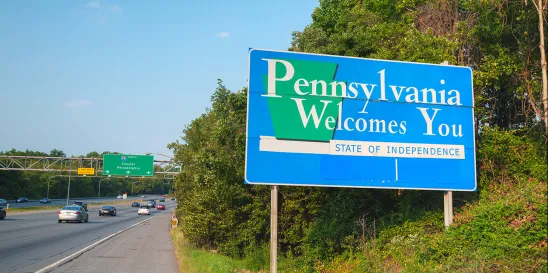This blog is the sixth in a municipal law series on all things roads. Legal issues involving roads are fact specific and require an analysis of the particular facts and circumstances of your situation. This blog addresses the issue of property rights to roads within subdivisions.
In our first Road Blog, we talked about public and private roads, generally. In part, we stated that, as one way that a road becomes a public road (through dedication), a municipality’s interest in a dedicated road will become foreclosed if the road is not accepted and opened for public use within 21 years from the dedication, unless there is consent of neighboring landowners. 36 P.S. § 1961. But note that, within a recorded subdivision plan, the expiration of the twenty-one year period does not eliminate the private rights in the street of all other lot owners within the plan. Let’s expand on that last sentence.
“When lots are sold as part of a recorded subdivision plan on which a street has been plotted by the grantor, the purchasers acquire property rights in the use of the street.” Starling v. Lake Mead Property Owners Association, Inc., Pa. Supreme Court 2017 (citations omitted). This is known as an easement of access. It is a property right that is acquired by all purchasers of property in a subdivision over all platted roads in that subdivision. And it is just that – a right. It is a private right appurtenant to the land that cannot be impaired or taken away without compensation. Pienda v. Perry, Pa. Superior Court 2020, citing Starling. It is part of your bundle of sticks as a property owner. So, for example, no other owner can permit houses to be built upon a platted road, designate it as a parking lot, or otherwise prevent access by property owners to their lots. None of the property owners may interfere with the rights of the other property owners as easement holders.
In Pienda v. Perry, Appellants blocked access to a road within a subdivision and the court granted an injunction requiring them to remove all structures that were blocking access to the Appellee’s property. The Commonwealth Court upheld the decision. The Court clarified that an easement of access is different than a grant of a private easement. The latter may be lost by abandonment, adverse possession and/or merger. The former cannot. The Court’s decision affected only those owners of lots within the subdivision plotted in the plan.





 />i
/>i

